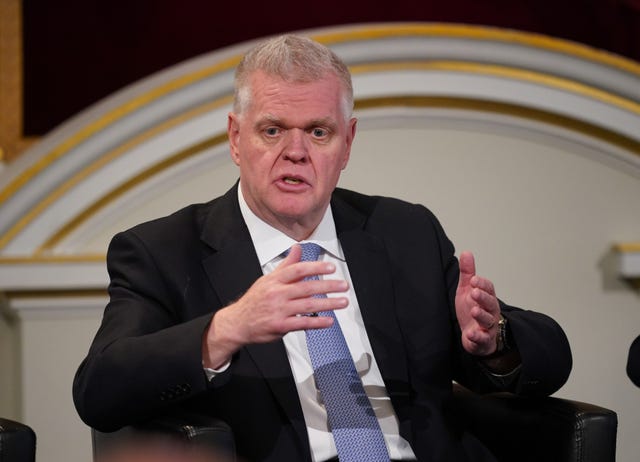
Nick Abbot 10pm - 2am
3 May 2024, 13:54 | Updated: 3 May 2024, 15:12

A vote on the decision was held during the banking giant’s annual general meeting in London.
HSBC shareholders have approved the removal of a limit on bankers’ bonuses, as top bosses fielded anger from pensioners for clawing back parts of their payments.
A vote on the decision was held during the banking giant’s annual general meeting (AGM) in London on Friday.
The indicative result means that bank staff known as “material risk takers” will have the chance to take home bigger bonus payments, having previously had bonuses capped at two times their fixed pay.
The UK’s financial regulators decided to change the rules in October last year, paving the way for the cap on bankers’ annual payouts to be scrapped.
HSBC said removing the cap will give the bank more flexibility to reduce fixed pay levels and instead focus more on rewarding staff based on performance over time.
It also said it will help it to attract and retain talented people from international markets outside the EU, where there is no limit on variable pay.
But the board was confronted by angry pensioners over the move to lift the cap on bonuses while cutting pension payments.
The leadership team advised shareholders to oppose a resolution tabled by the Midland Clawback Campaign calling for the removal of a feature on its pension scheme that reduces the benefits received by some pensioners.
The bank has been engaged in a years-long dispute with the campaigners over the “clawback” feature for former employees of Midland Bank, which HSBC took over in the 1990s.
Clawback is the practice of reducing the company pension scheme for an employee when they reach the state pension age.
Nancy Ball, chairwoman of the campaign, confronted the board during the AGM, calling the feature a “shambles” and arguing that members were not told about it when they worked at the bank.

In response, group chairman Mark Tucker said: “We understand this is an important and emotional subject and many of those devoted significant parts of your working lives in Midland Bank and HSBC.”
Citing legal reviews, research and findings from the Equality and Human Rights Commission over the years, he said the clawback feature “is not discriminatory and it was properly communicated to scheme members”.
Another HSBC shareholder described the feature as a “stealth deduction”, and pointed out that there are about 10,000 people in a Facebook campaign group who feel they were not fully aware of the clawback issue.
Asked whether he knew about the feature from his time working at Midland Bank, HSBC’s chief executive Noel Quinn replied that he was “well aware”.
Attendees at the AGM frequently erupted into applause in response to the grilling from campaigners, or loudly heckled the board over their responses.
The board was also questioned about its green finance strategy and its approach to investing in the steel, plastics and fossil fuel industries.
On behalf of a group of investors, Jeanne Martin from ShareAction said some aspects of its climate strategy “lack specificity” and “fail to align with leading practice”.
On the almost one trillion US dollars pledged towards sustainable finance, Ms Martin asked HSBC to provide investors with a breakdown of how exactly the funding targets will be spent.
In response, Mr Tucker said: “We have a clear and transparent set of policies around project financing and we remain committed to becoming net zero in our finance emissions by 2050.”